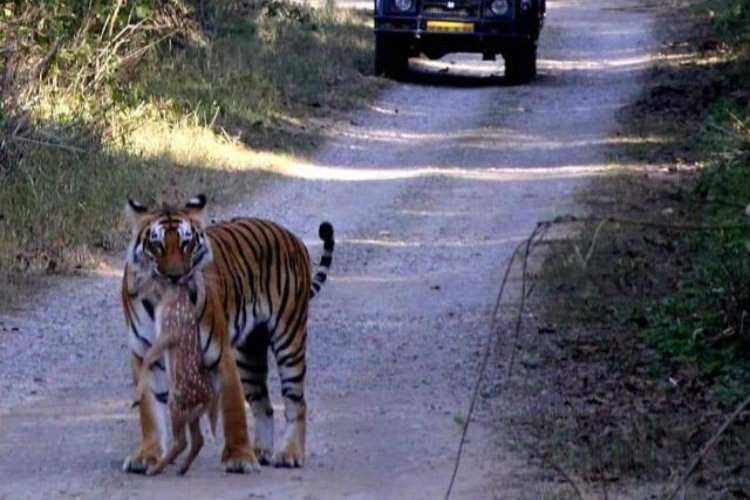By Maitri
It won’t be quite erroneous to state that the expression ‘Safari’ came into limelight after the 1969 movie ‘African Safari’ by Ron Shanin. Previously, ‘Safari Travel’ was the prevalent terms that characterized safaris only in Africa. But today, safari travel has become the most cherished voyage around the globe to adore wildlife and its ambiances.
With a target to see and capture the ‘Big Five’, safaris have far more to see and explore than the elephant, buffalo, leopard, rhino and lion. Safari holidays take the travelers through the dwellings of the wild. Fay beyond the taverns of the zoo and the nature parks, safaris are the aperture to perceive the wild in their natural habitat, where they wake up, hunt, roam and finally fall asleep. No doubt holiday safaris are sensational and a probing expedition for the nomads who anticipate surprises at every bend of their route.
With an increase in demand for authentic safari holidays, voyage to the wild has become more adventurous. A report by Travel Market confirms that countries like Kenya and South Africa have witnessed a safari tourism growth of 16percent in 2016 than in previous years, with American tourists being the maximum. An all-inclusive report infers that travelers have inclination both towards lesser known and popular safari destinations around the world.
Courtney Beaver, owner of CTB Travel in Austin, Texas recommends Namibia, a lesser-known western nation on the Atlantic coastline. “You get desert lions there. The landscape is incredible, the Skeleton Coast. It’s a entirely different way to look at a safari, with a totally different game and not as much tourism.”
Apart from these realms, places like Botswana, Zimbabwe, and Morocco are gaining new explorers owing to their secluded nature camps and diverse wildlife. Types of safari vary depending upon the season, area of safari and nature of wildlife to be spotted at. Some forests have typical wooden shelters dedicated for watching wildlife while some others allow the nomads to walk on foot into the deep woods.
Owing to the reservation edicts of animals, any sort of mistreatment or rides that torture the fauna have been clogged by the operators. The managing director of Giltedge Travel group Sean Kritzinger discloses, “For our groups and incentives we would normally offer elephant-back rides as one of the activities. However, with the recent change in attitudes and mindset of travelers towards these kinds of activities, we have stopped offering them completely.”
With shrinking of safaris on animal backs, jeep and bus, it has become more prevalent among visitors. Watching the creatures at a close distance which else and otherwise a traveler has viewed on Animal Planet and Discovery is indeed a moment of curiosity for the wanderer soul.
Gone are the days when safaris and hunting wildlife were synonyms. With more strict laws of conservation at every corner of the world, hunting and poaching have been replaced by protection and preservation. Along with other good reasons to preserve the animals, Africa has come up with various integrated conservation and development projects to save the fauna that includes setting up of protected lands for them as well.
With an emerging trend of responsible tourism, travelers are looking for more realistic safari that reconnects them with nature. Nomads in the present day are more ethical towards the wildlife with a second thought of passing on one of life’s greatest adventures to their future generations as well.






